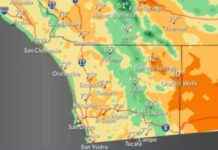With months of delay, but finally the Generalitat and the Government have closed the agreement for the Nord round, the layout of the B-40 highway designed to improve the connection between Terrassa, Sabadell and Castellar del Vallès, as La Vanguardia has learned. In parallel, the Moncloa also commits to transfer more than 900 million so that the Catalan Executive allocates them to the improvement of other infrastructures.
The signature should have been stamped before March 31, but various disagreements have meant that a final agreement has not been reached until this weekend. In any case, both parties have shaken hands, but the signature of the protocol is missing. It is scheduled for early this week. Although the project left Juli Fernàndez touched to the point that he ceased his position as Regional Minister, the negotiations between the two parties have proceeded without stridency, with a certain normality, despite the last sine qua non condition that he put on the table the Government: that the Executive of Pedro Sánchez comply with the transfer of the 914 million euros that he agreed with ERC in exchange for facilitating the approval of the current general budgets.
For several weeks, both the Spanish and Catalan governments had claimed that there were still some fringes to close. The Government demanded that it limit itself to the terms of the agreement sealed within the framework of the Catalan budgets agreed with the PSC, and demanded, among other things, that the expression “high capacity road” be deleted from the wording, so that it is also avoided that in the document speaks of a double track for each direction of travel.
Similarly, there is no reference to the name B-40, a ring road project for the Barcelona metropolitan area designed decades ago and which only has a few sections in service. The Catalan Cabinet wanted to avoid any interpretation that would allow the extension of the route beyond Terrassa or Sabadell. In fact, the PSC, which demanded the north round of Vallès to approve the budgets of the Generalitat for 2023, has fought to have it extended to Granollers.
Thirdly, the Government insisted during the negotiations that the project be financed with the money from the third additional provision of the Statute, which marks an investment between 2007 and 2013 according to the percentage of GDP that Catalonia contributed to the State. It is a historical debt that the central government has contracted with the Generalitat and that the Supreme Court ruled that it should be paid. Finally, the financing of the Nord round will not start from this statutory point, as the Government has demanded.
With regard to the other agreement, that of 914 million for other infrastructures, it is an amount that the Government undertakes to transfer to the Generalitat so that it can carry out the works. Grosso modo, 384 million euros will be allocated to update the C-32 in Maresme; 250 million for the accesses of the AP-7 and the AP-2; for the highway of the Pyrenean axis, the N-260, which requires 260 million. Finally, another 20 million will be devoted to new interchanges between the R8, of the Rodalies train network, with the Generalitat de Catalunya railway network.
Going into more detail, the Government intends several actions to improve the connectivity of the C-32 with its surroundings, with new links and the improvement of connections with the N-II. Roundabouts, the dismantling of toll areas, the pacification of several sections of the N-II and bike lanes, as well as the construction of acoustic barriers or the installation of photovoltaic panels, among other actions, are planned.
As for the AP-7 and AP-2, remodeling of multiple links is planned, as well as the construction of new connections with other highways and towns.
However, with the protocol agreement, the Ronda Nord project still has another signature to sign: the execution agreement. Generalitat and Government have agreed that the drafting of the project corresponds to the Catalan Executive. This will be the one that will decide the final layout, the constructions such as tunnels (if necessary), the number of tracks in each direction and other issues.








